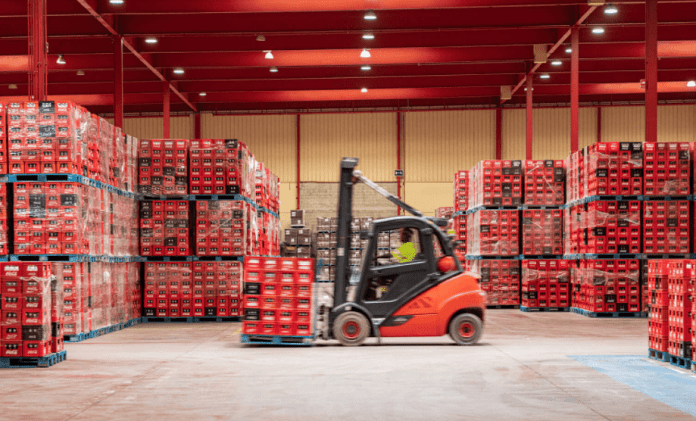Coca-Cola European Partners has signed a multiyear agreement with IBM to move to an open hybrid cloud environment to create a “springboard” to launch IoT and AI technologies to bring new insights to its operations and drive efficiencies.
Coca-Cola European Partners (CCEP) was formed in 2016 with the merger of the three main European bottling companies for the Coca-Cola Company, the Atlanta-based outfit that makes and markets the Coca-Cola syrup concentrate. CCEP is the largest bottler of Coca-Cola by revenue, with 47 manufacturing sites in 13 countries in Europe.
The new agreement, which couples IBM’s public cloud with Red Hat Enterprise Linux and Red Hat OpenShift, is an expansion of an existing relationship, started in 2018, which has seen IBM move about a third of CCEP’s enterprise workloads from a dedicated US data centre to the IBM public cloud in Europe. The “first wave” of the new cloud migration will be completed by end of 2021; the job will be finished entirely by the end of 2022, said IBM.
IBM will manage the new cloud environment, which will include usage of the IBM public cloud in Europe, and several large SAP workloads, it said. The move, spurred by the fallout from the coronavirus (COVID-19) pandemic, is designed to reduce CCEP’s operational expenses, and put it in a position to make use of centralised, higher-grade data analytics and artificial intelligence (AI) tools.
IBM is also to provide a single management and control dashboard for CCEP’s IT infrastructure and data. Usage of Red Hat’s Kubernetes-based OpenShift platform will allow CCEP to build mission-critical applications once, and run them on a public cloud platform, said IBM.
Luq Niazi, general manager of IBM’s global distribution sector and global managing director for its consumer industries unit, noted the consumer trend for online grocery purchases since Covid-19 broke in Europe. Online shopping has gone from three percent to 30 percent of overall grocery sales in advanced economies in the past couple of months, he said.
“That number is not shrinking even as the pandemic eases in some countries,” he said. Generally, the pandemic has forced supply chains to seek out digital-change technologies to make their processes nimbler, he added.
He added: “This rapid and substantial shift led to some pain points in the supply chain. For example, stores in Spain had too much supply because few people were willing to leave their homes, whereas in Germany, there were shortages, especially of products like water. What brands quickly realized is twofold: they need better real-time insights into consumer purchasing behaviors, and they need to quickly pivot to satisfy shifts in supply and demand.”
At the same time, variation in demand, dictated by such things as holiday seasons and weather, are also driving supply chains to seek flexibility.
Niazi commented: “By embracing a hybrid cloud model, CCEP will have access to much more up-to-date information about all of its customers. Cloud enables greater flexibility, which will enable CCEP to scale up and down, re-prioritize production lines, and continuously reassess supply and demand to meet the needs of its customers.
“Think of what IBM offers as a single pane of glass: we let companies see across geographies and break down silos, so that they can get the visibility they need to keep their supply chains operating smoothly. Brands that work with IBM will be better able to respond to market shifts and ensure that they have more of the products consumers want, when they want them.”
Peter Brickley, chief information officer of Coca-Cola European Partners, commented: “Our successful collaboration with IBM over the last few years has given us the confidence to take the next step in our strategic cloud-first digital transformation. The selection of IBM’s hybrid cloud architecture with Red Hat OpenShift gives us the flexibility to optimize across different public cloud platforms according to our future needs.”
IBM’s cloud business ranks behind Amazon Web Services (AWS) and Microsoft Azure, in terms of reported revenues. But the unit, which recorded $23.5 billion in revenue at last count, is showing good growth, at 30 percent per year, said Niazi. It has recently concluded partnerships with Bank of America, BNP Paribas, Adobe, Daimler, Caixa Bank, and Banco Sabadell.

